Table of contents
General considerations on the benefits of maize
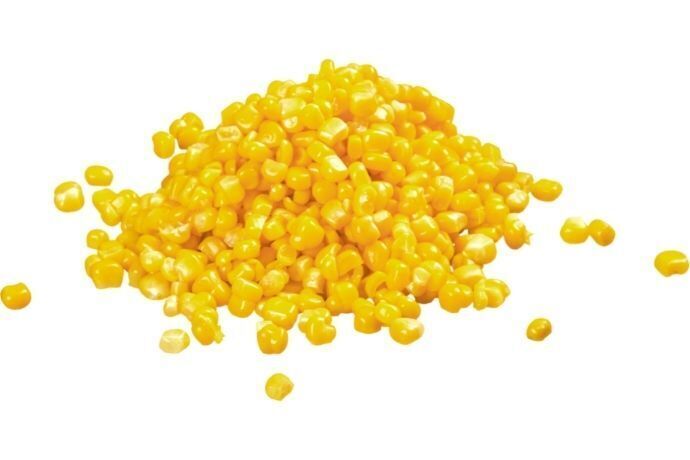
Being cultivated practically all over the world nowadays, corn is one of the main cereals ever consumed by human beings. This plant of peculiar taste and shape is considered a superfood for having a multitude of properties that completely nourish the body, supporting various aspects of human life as a whole.
Based on various field studies, many experts believe that the origin of the corn we eat today is not natural. According to scholars in the field, the cereal would have arisen from combinations of other cereals, made by pre-Columbian peoples who inhabited the region where Mexico is located today.
Even the cultures that settled in that region, such as the Mayas and Aztecs, revered corn and called it "sustenance of life. Brazil is currently considered the third largest corn producer in the world, behind only the U.S. and China.
Very common in June parties, typical northeastern culinary traditions, corn has established itself and proved its worth. Nowadays, even if it is not always consumed directly on the cob, corn is present in various dishes and delicacies produced in all parts of the planet.
Throughout this article we will talk about corn and its amazing benefits. Also know about the nutritional profile of the cereal and the best ways to consume it. Check it out!
The nutritional profile of maize
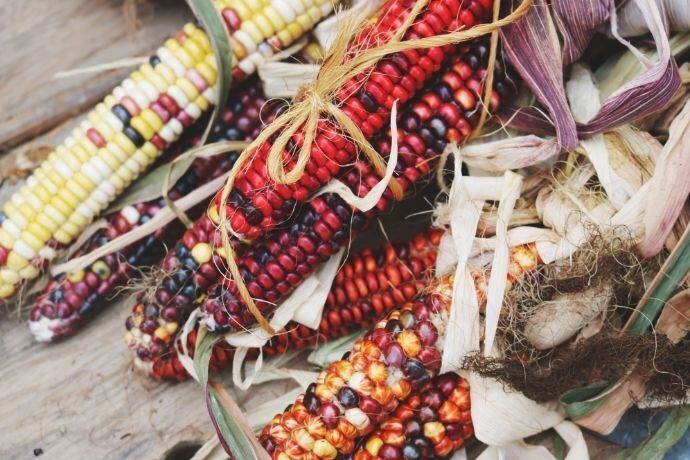
When the Mexican peoples called corn "sustenance of life," they had no idea of the amount of benefits of this cereal, but they certainly felt, through daily consumption, the nutritional properties of this superfood.
Corn has more than 150 catalogued species, but they all share a similar nutritional profile, with differences that are due to the grammage of the elements and other small details. Learn more about the components of corn!
The fibres
One of the main benefits of corn is the fact that the cereal is rich in fiber. This element, which is present in virtually all cereals, fruits and other vegetables, is very important for maintaining a good intestinal transit, facilitating evacuation and even providing weight loss.
It is estimated that in 100g of corn grains there are around 4.5g of fiber. This fiber is mostly of the insoluble type, which is digested more slowly by the body. Therefore, by consuming corn an individual feels more satiated, because of the slowness in digestion, which at the same time spreads the nutrients through the digestive tract.
Vitamins
Vitamins are extremely necessary compounds for the body, where they act in the regularization of various functions. Vitamin A, for example, helps in the regeneration and renewal of cells, being of paramount importance for eye health.
Vitamin C, in turn, is a powerful antioxidant that slows and even prevents the early death of cells, preventing aging and the onset of certain diseases. And of course, corn is very rich in vitamins of various types. See the list below for the amount of the main vitamins present in each 100g of corn:
- Vitamin A: 4 mcg;
- Vitamin C: 1.7 mg;
- Vitamin E: 0.3 mg;
- B complex vitamins: about 5 g.
Minerals
Another type of essential substances are minerals. These compounds are essential for the formation of tissues, especially bone and muscle, and play an important role in the overall structure of the human body.
Minerals also play an important role in the control and balance of some substances created by the body, especially digestive acids and some enzymes. Thus, elements such as magnesium and potassium protect the functioning and structure of vital organs like stomach, intestines and liver, for example.
See below how much corn has, per 100 g, of some of the major minerals:
- Calcium: 2 mg;
- Phosphorus: 61 mg;
- Magnesium: 20 mg;
- Potassium: 162 mg;
- Zinc: 0.5 mg;
- Among other minerals.
Lutein and Zeaxanthin
To reaffirm the importance of corn as one of the most balanced foods that exist, it is always good to remember that the cereal is rich in lutein and zeaxanthin, two substances that act together and are sought after by many people.
The reason for the search for this junction is the antioxidant power of both lutein and zeaxanthin. Both compounds are very powerful in controlling the so-called free radicals, which are unstable molecules capable of destroying cells and causing metabolic disorders in any part of the body.
Proteins
Very remembered by athletes and bodybuilding lovers, proteins are indispensable compounds for the proper functioning of the human body. And it is important to stress, to the surprise of few people, that corn is a rich source of protein.
It is estimated that each 100g of corn contains 3.4g of protein, which can substitute even more conventional proteins such as milk and meat. These substances tonify the organism, serving, among other things, as a metabolic agent that generates energy and disposition.
The health benefits of corn
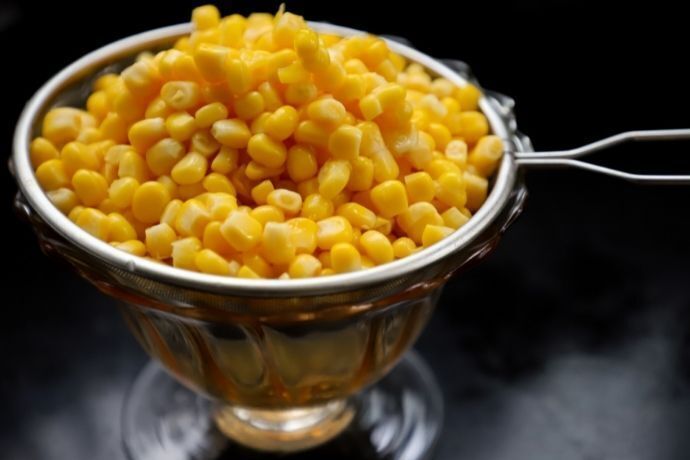
Now that you have more information about the nutritional profile of corn, learn what benefits the food promotes in health through its rich compounds. Follow!
Acts in reducing cholesterol levels
The insoluble fibers present in corn, which were mentioned above, increase the production of the so-called bile acids. These substances act, among other things, in the breakdown of fatty plaques that can obstruct veins and arteries and that are created by cholesterol.
In addition, while they "take time" to be digested, fiber prevents excess fat from being metabolized by the body, which also prevents the possibility of a build-up of cholesterol in the vascular system.
On the other hand, the better functioning of the intestine, caused by the fibers, also increases the production of the beneficial fatty acids that inhibit the synthesis of cholesterol by the liver, further reducing the incidence of the harmful substance in the body.
Strengthens the immune system
The vitamins, proteins and especially the antioxidants present in corn, such as lutein and zeaxanthin, promote an increase in the capacities of the immune system. It happens that this system is based on protection cells (leukocytes, lymphocytes and others) that attack any invader, be it a virus, bacteria or fungus, for example.
With the strengthening of these cells, the body's entire protection network is potentiated, increasing resistance to diseases such as colds and flus and even more serious ailments, such as the respiratory disease responsible for the pandemic that lasted from 2019 to 2022.
Acts as an energy booster
Corn can also be consumed in view of the energy increase. The reason for this is the fact that this cereal is very rich in complex carbohydrates, or slow absorption carbohydrates, as they are also called. To get an idea, every 100g of corn there are 17g of carbohydrates of this type.
Slow carbohydrates bring plenty of calories to the body and are metabolized in a slow manner, promoting energy inputs in various parts of the body, especially in muscles and nerves that are used for energy bursts in physical and work activities, for example.
Promotes improvements in mood
Corn has two substances that have central roles in mood regulation: magnesium and folic acid. Magnesium is a mineral with many properties. However, one of the main ones is the ability to relax nerves and muscles, which ends up reducing physical stress and improving mood.
Folic acid, on the other hand, acts directly on the neurotransmitters responsible for good mood, promoting a greater release of them. Among the substances most affected by the acid is serotonin, which is a neurotransmitter known as the "happiness hormone".
It is beneficial to eye health
Corn can act in favor of vision health in two ways: through the action of lutein and zeaxanthin, and through the "powers" of vitamin A. As we know, lutein and zeaxanthin are antioxidants, classified as carotenoids.
The free radical fighting action that these substances have can prevent retinal cells from being destroyed by degenerative diseases, thus preventing vision problems and even blindness.
Vitamin A, in turn, acts as a vision protective component in the strengthening of eye structures. This substance basically enhances the resistance of the cells of the retina, iris and optic muscle to damage that can impair vision.
Helps control blood sugar
Contrary to what many people think, eating corn correctly can help diabetics control their hyperglycemia. Going in the opposite direction of some other sugary cereals, corn has a slow absorption rate, which prevents blood sugar spikes.
In addition, the increase of energy caused by food is used by the body to improve the metabolization of sugar, preventing the accumulation of the substance in the blood, which characterizes the dreaded diabetes.
Helps the weight loss process
The mixture between insoluble fibers, proteins and slow absorption carbohydrates promotes a slow metabolization of the organism, avoiding the accumulation of liquids and skin and intramuscular fats.
In other words, the conscious consumption of corn, by means of a calculated inclusion in the diet, can help in weight loss. However, it is always important to remember that the exaggerated consumption of the cereal may cause the opposite effect, generating weight gain, precisely because of the high quantity of carbohydrates present in its composition.
Improves intestinal transit
To finish the list of benefits from corn, we could not fail to mention the improvement in intestinal transit. In addition to the high amount of insoluble fiber, corn is also free of gluten and other substances that are harmful to the proper functioning of the digestive tract.
As a result of the action of these compounds, it is possible to notice the formation of a protective network against ailments such as celiac disease, irritable bowel syndrome and Crohn's disease.
How to consume corn and contraindications
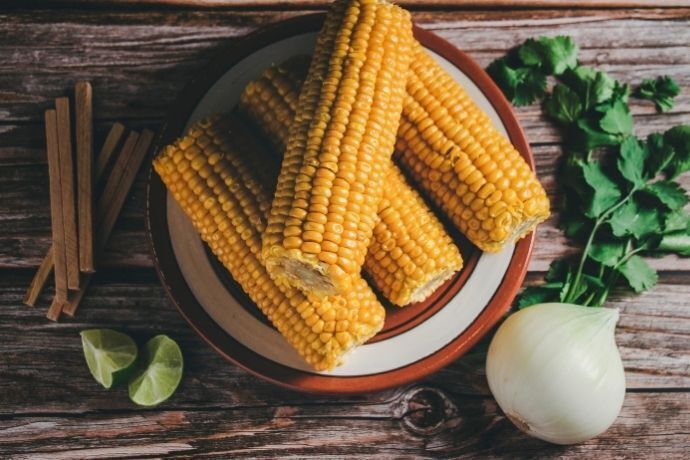
Much of the benefits present in corn are linked to how you prepare the cereal for consumption. Some of the more traditional ways are the most indicated not only because of the cultural weight, but also for maintaining the nutrients of corn in the process.
Meet, reading the topics below, four common ways to consume corn and understand what are the main contraindications to the consumption of this superfood.
Stew
Boiling corn is a northeastern culinary tradition that ended up taking over the large Brazilian centers. It is not uncommon to find reports of people who have enjoyed a nutritious boiled corn purchased at some kiosk or street stall while attending to some appointment.
And as a fine example of the lessons that regional tradition brings about food, boiled corn is one of the best ways to consume the food. Boiling preserves practically all of the nutrients, in addition to enhancing the corn's flavor and providing an almost elementary experience of eating the kernels directly from the cob.
To cook corn you just need to sanitize some cobs, eventually cut them and then put them in a pot, usually a pressure cooker, which will use the temperature to promote the cooking of the food.
Popcorn
The famous corn popcorn arises from overheating a specific type of corn kernel that then pops, exposing its contents in flake form, which is basically a mass of starch, corn starch.
In general terms it is correct to say that popcorn is healthy and a great way to consume the nutrients present in corn. However, what "spoiled" many varieties of the food was the infamous industrial processing. Nowadays it is very difficult to find "popcorn" in its natural form.
The absolute majority of these foods are purchased in supermarkets and allusive stores, and come contaminated with salt, dyes, preservatives and other harmful substances. However, it is worth reiterating that if it comes from a totally natural source, popcorn is indeed a nutritious food. On the other hand, "microwave popcorn" should be avoided.
Curau
The corn curry, also known as canjica de milho, is one of the most traditional June dishes. And, incidentally, in the northeast the canjica can be consumed throughout the year, because it is a dish extremely appreciated by the northeasterners, especially the backwoods and countryside.
The canjica is made from the processing of corn kernels, until they become a creamy substance of unmistakable texture. Besides being delicious, the canjica has a manufacturing process that maintains all the nutrients present in the composition of corn, thus configuring itself as one of the best ways to consume the cereal.
Canned corn
It is true that there are natural preservation techniques for corn grains practiced for many generations and consolidated as correct. However, most canned corn comes from industrialization processes that harm the food.
To keep the grains preserved, industries add sodium and other elements to the canning container. This causes the corn to lose essential nutrients such as antioxidants and vitamins present.
For all this, it is important to state that canned or industrialized corn in any form is not the best option for consumption of the cereal.
Contraindications in the consumption of corn
It is correct to state that corn is a food with practically no contraindications in its consumption. However, like any food, when consumed in an uncontrolled manner, corn can cause adverse effects.
The large amount of carbohydrates in corn can cause weight gain, if consumption is unregulated. On the other hand, it is known that corn has in its composition phytic acid, a substance that hinders the absorption of iron and zinc in the body of some people.
Finally, it is important to highlight that although they are extremely rare, there are cases of people who are allergic to corn and its consumption can trigger reactions such as swelling, itching and diarrhea in these individuals.
Add the cereal to your routine and enjoy all the benefits of corn!
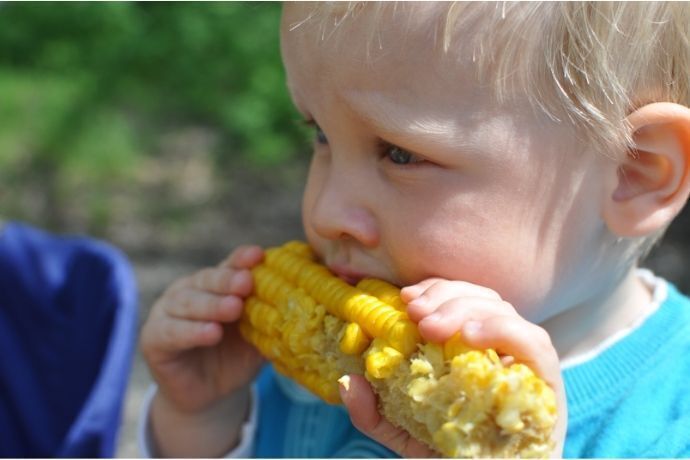
We have seen in this article the importance of corn consumption, beyond just acts inspired by customs and traditions. Based on the information presented, it is possible to consider this cereal as, in fact, a superfood.
The ideal is to make a conscious consumption, using correct preparation techniques and making sure that the whole process is within the food safety standards. Thus, the nutritional gain provided by corn becomes a reality.

